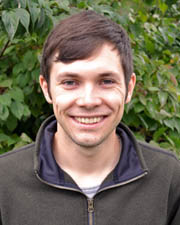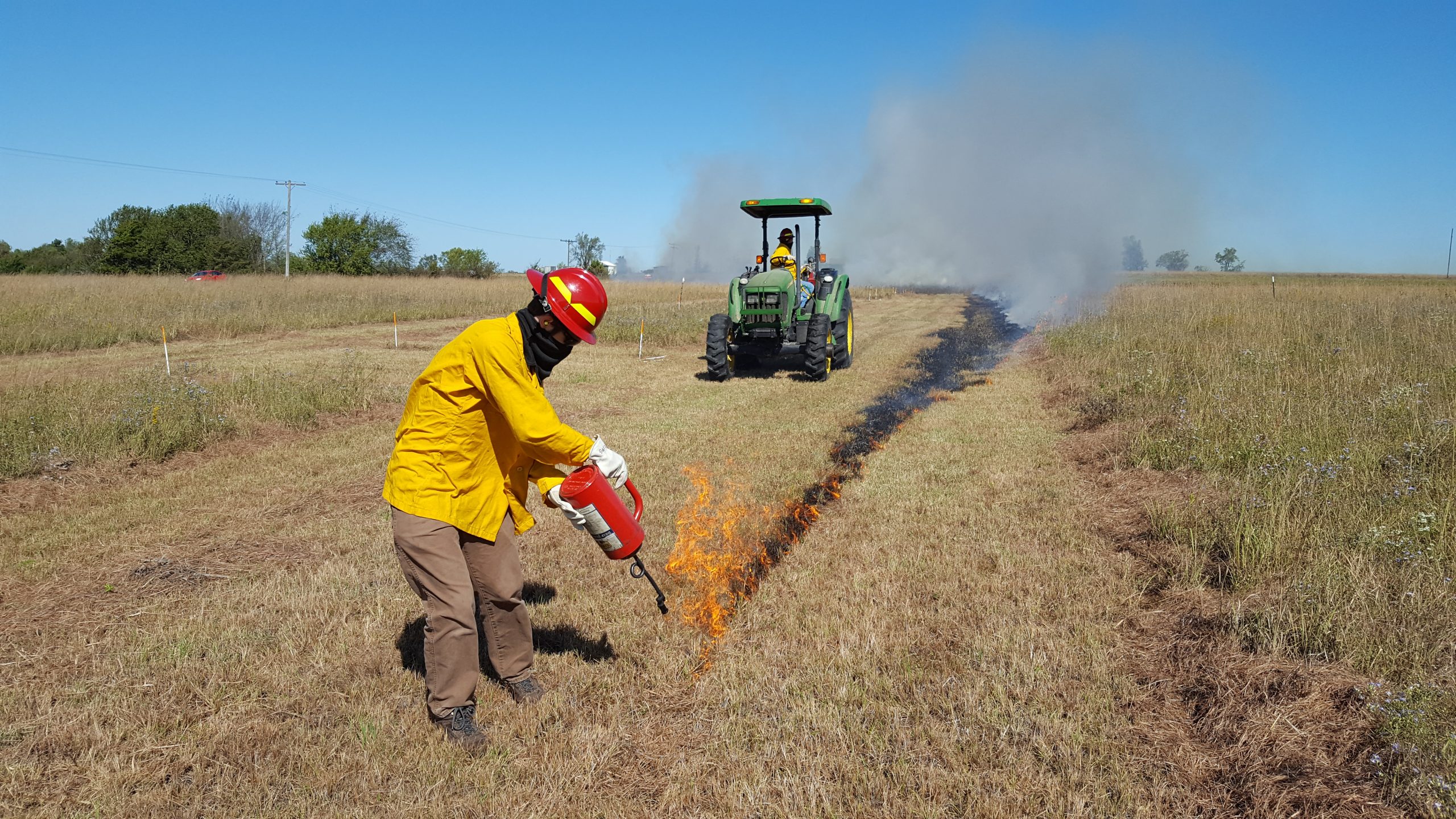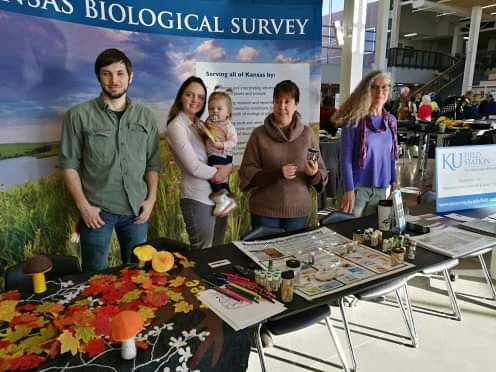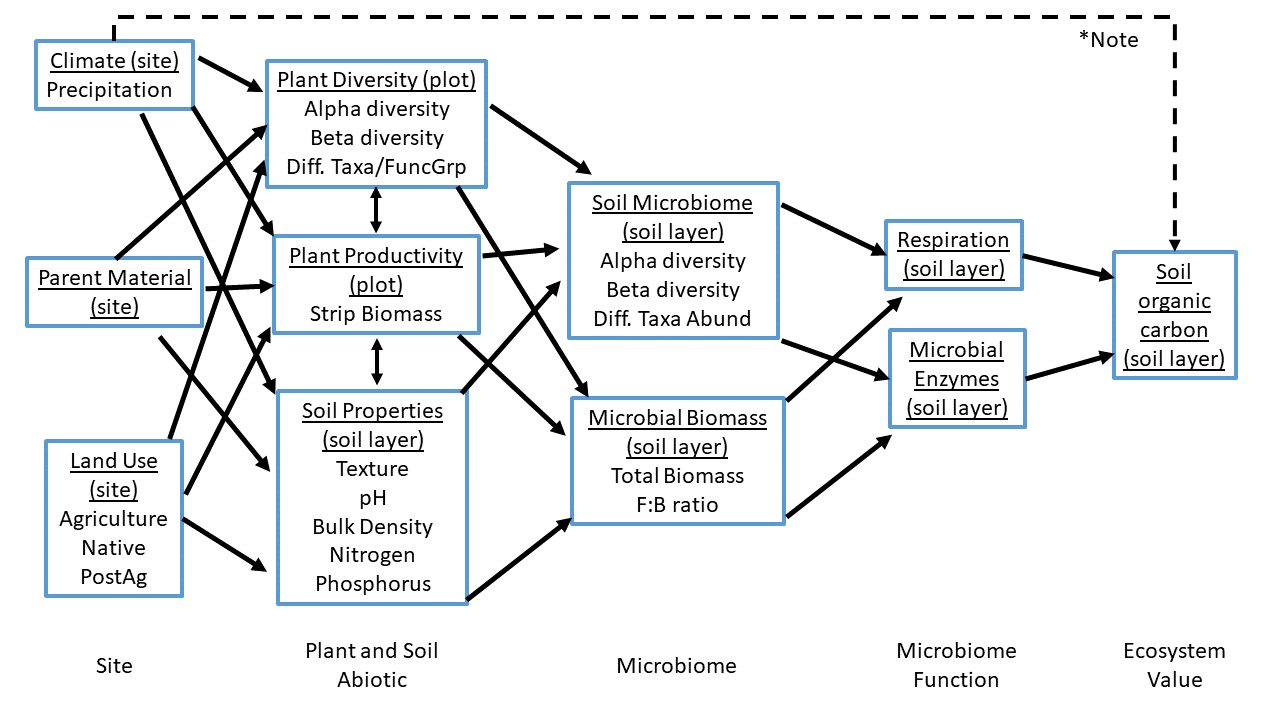



It was a 5th grade biology textbook that ignited Jacob Hopkins’ interest in ecology. He recalled “getting lost in thought when reading about the different ecological processes and often having to be told that the class was on a different page or chapter entirely.” That was when he knew he wanted to study ecology as he went on to explain, “Ecology originally captured my interest because it deals with complex interactions between organisms and their environment.” Then, when his Microbiology teacher Mrs. Pemberton showed Jacob “how much fun it was to grow bacteria and fungi in petri dishes, and use them for different experiments,” his interests expanded to microbiology. Jacob said he always looked forward to his microbiology assignments “where we got to identify mystery microbes based on different tests and traits.” However, it was during his studies at the University of Indiana he said, when “I figured out that you could do microbiology and ecology at the same time (thanks to Dr. Jim Bever), that’s when I knew that I had found the right field!” Dr. Jim Bever is a Distinguished Foundation Professor of Ecology and Evolutionary Biology at the University of Kansas (KU), Senior Scientist at the Kansas Biological Survey and Co-PI of the Kansas NSF EPSCoR RII Track-1 Award OIA-1656006: Microbiomes of Aquatic, Plant, and Soil Systems across Kansas (MAPS). Currently, Jacob is in the 5th and final year of his Ph.D. program, and he is working on the MAPS project with his adviser, Dr. Ben Sikes, Associate Professor of Ecology and Evolutionary Biology (KU), Associate Scientist at the Kansas Biological Survey and Plant and Synthesis Research Team Leader for the MAPS project. As for his work on the MAPS project, Jacob said “being able to work with microbial communities, whether in petri dishes or through environmental DNA, is a dream come true. The field is extremely diverse in terms of methodology, and it seems like there are new findings weekly which point to new and exciting questions to explore and test.”
Jacob describes himself as a “microbial ecologist who combines traditional microbiome-related techniques with modern innovations in statistical methods to answer microbial ecology related questions from a hierarchical perspective.” His approach “explores the role of microbiomes in ecosystems, how community structure shifts in response to environmental change, how inter-microbial interactions influence larger ecological processes, and what individual taxa can tell us about entire ecosystems.” To answer these questions, he says “I combine molecular biology (next-generation sequencing), manipulative field studies, and bioinformatics skills, to analyze my research questions in a rigid, experimental framework.” Jacob’s research interests revolve around the MAPS Synthesis objectives, and he introduced his research project as follows, “Land use and climate effects are important drivers of ecosystem services; however it is unclear to what extent soil microbes mediate these effects. My current research uses combined datasets from the Kansas NSF EPSCoR MAPS project, to model how land use and climate effects on soil microbes interact with plant communities and soil health, to influence ecosystem services like carbon storage. This work uses structural equation modeling to incorporate multi-year datasets, and will eventually integrate both terrestrial and aquatic ecosystems across the state of Kansas. Preliminary results show that land use and climate effects on soil microbial community structure, biomass, and diversity, influence microbial enzyme production, and ultimately regulate soil carbon storage. This suggests that changes in ecosystem services associated with land use and climate are mediated by shifts in soil microbial communities.”
Currently, Jacob is a graduate research assistant in the Sikes’s Microbial Laboratory at KU where he and Dr. Sikes explore “the influence of fire on fungal communities and their functional roles in critically threatened Longleaf pine savanna ecosystems. Results of this work were published in Oecologia (2020), titled Frequent fire slows microbial decomposition of newly deposited fine fuels in a pyrophilic ecosystem and suggests that fire alters fungal community structure in ways that slow decomposition and regulate the post-fire growth of fire-adapted plant taxa.” When asked what he enjoys most about his research, he said, “My favorite part of my research is using new and existing multivariate statistical techniques for analyzing microbial communities. I have been able to use techniques like structural equation modeling and compositional analysis to explore the roles that soil microbes play in ecosystems.” As for what skills he is developing as a result of his MAPS research experience, he added, “I am constantly learning new techniques and concepts involving statistics, environmental DNA techniques, ecological theory, as well as writing and communication skills. I have really tried to maximize my learning opportunities during my graduate career, and feel that the many things that I’ve learned (and am continuing to learn) have helped to make me a better researcher.”
Jacob is from Kokomo, Indiana, and received his Bachelor of Science degree in Microbiology from the University of Indiana (IU) in Bloomington, IA where he graduated Phi Beta Kappa, with Highest Distinction and with departmental honors. While at IU, he worked in Dr. Bever’s IU lab for four years serving first as a lab technician, and later as the Lab manager, he presented research at the Midwest Ecology and Evolution Conference, and he was President of the UI Hapkido Self-Defense Club. Jacob is also an Eagle Scout. Since entering the KU, Jacob has volunteered with the Ecology and Evolutionary Graduate Student Organization where he “assisted with scientific outreach projects that have been presented to audiences of all ages, including the MAPS Kansas Ecology for Elementary students (KEES) program, and he has developed a fungal ecology-related outreach module that applicable to all knowledge levels.” In addition, Jacob is serving as the TA for the 2020 fall muli-institutional course taught be Dr. Sikes titled Topics in Structural Equation Modeling (SEM) for Biologists. Jacob has won numerous awards including a Special Projects Award, an NSF Graduate Research Supplemental Funding Award, an Ecology Society of America – Soil Ecology Section Student Travel Award, the KU Mari F. Pesek Graduate Research Award, a KU Ecology and Evolutionary Biology Department Travel Award, and an NSF Graduate Research Fellowship Program Prairie Biotic Research Small Grants Award. He has two publications, 1. Frequent fire slows microbial decomposition of newly deposited fine fuels in a pyrophilic ecosystem (2020) in Oecologia as (mentioned earlier), and MycoDB, a global database of plant response to mycorrhizal fungi (2015) in Scientific Data. His professional organization involvement includes membership in the Mycological Society of America, the Society for the Advancement of Chicanos/Hispanics and Native Americans in Science, and the Ecological Society of America.
As for Jacob’s future endeavors, he plans to complete his PhD by January 2021 and then pursue a postdoctoral position in microbial ecology, with the ultimate goal of attaining either a tenure track or industry-based position. Ideally, he said, “I will continue to work with microbial communities, and analyze how the composition of these communities influences processes like decomposition, plant-pathogen interactions, and plant-microbial mutualisms.”
